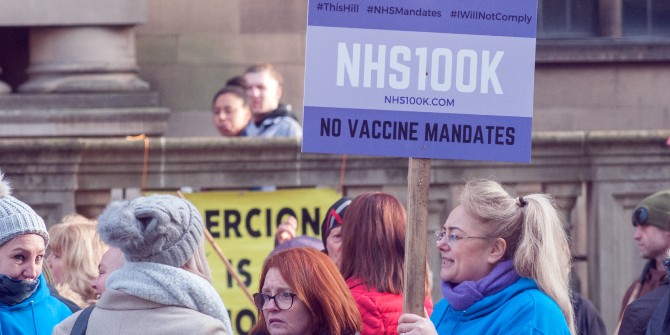The ability to inform the police about breaches of COVID-19 restrictions is an important tool for the authorities, says Martin Kwan (OBOR Legal Research Centre). But people understandably worry that it will be abused by people filing false reports. To deter this, he suggests that malicious informers should be fined.
‘Tell us about a possible breach of coronavirus measures.’ In the US, Canada, Germany, and the UK, people are encouraged to report those who have breach COVID-19 restrictions. In Pennsylvania and Tucson, Arizona, anonymous reports of non-compliance are allowed. By contrast, some jurisdictions such as Saskatchewan in Canada expressly prohibit anonymous reporting.
In Germany, despite the informing mechanism being introduced solely for reporting non-compliance with COVID-19 restrictions, there have been comparisons with the Stasi past. In other jurisdictions, concerns about informing have frequently been aired in the media, which warns that it is “poisoning social relations”, “fuelling social division”, a “Golden Age of snitching” and “a nation of snitches”. Apparently in an effort to ease these fears and encourage an amicable culture, the UK Prime Minister Boris Johnson and the police have quickly stressed that reports should only be made in extreme cases, and friendliness has been emphasised.

Nevertheless, encouraging informing is neither unlawful nor unconstitutional. It serves positive and benign purposes, which include preventing breaches of COVID-19 restrictions and encouraging mutual monitoring. Without it, the relevant authorities may not be aware of the existence of breaches. Fear of being reported is intended to discourage people from breaching the relevant laws.
But if informing is legitimate, then what is at the root of people’s concerns? Different groups of people have different reasons to resent the informing mechanism, and some of the concerns may have a cultural or political aspect. I will focus here on three of the major causes. To address the concerns effectively, it is helpful to distinguish the first two causes, which are not actually attributable to the informing process. The third cause reveals design flaws in the mechanism.
First, some people feel uneasy about the informing policies because they have indeed breached the COVID-19 regulations. They simply do not want to be reported. In this case, informing serves its purpose of strengthening compliance and the concern is unjustified.
To others, the fear of informing is attributed to either dislike of the COVID-19 laws or restrictions, or distrust of government. Some commentators – including from the United Nations, the US and Australia – consider COVID-19 measures tools of oppression. The thrust of the concern does not really lie with the informing mechanism, but with the government.
Nonetheless, some law-abiding citizens, who fully accept the legitimacy of COVID-19 measures and trust their own governments, may still feel worried. This comes to the third cause of concern.
Innocent people may fear that a malicious report will be filed against them – prompted by personal grievances or enmity. Despite the presumption of innocence, it is not difficult to imagine the stress and difficulty of clearing one’s name during an investigation or even a prosecution. The existence of on-the-spot fines and instant punishments, which can lead to imprisonment in a number of jurisdictions such as the US and Australia, makes this even more acute.
The lack of safeguards explains the fear of fabricated allegations. If the informant’s identity remains anonymous, there is no risk in filing a fabricated report. Even if anonymous filing is prohibited, there is usually no easy civil remedy against the unscrupulous informant. In the US, the suggested courses of civil action against a falsifying informant rely on the intentional infliction of emotional distress and/or defamation. However, the former course is noted as “a very difficult tort to establish” in the US, partly because it requires “severe” emotional distress. Importantly, it was held that “the privilege in Civil Code section 47(b) barred causes of action for… intentional infliction of emotional distress, even if the police report was made maliciously”. In the UK, the comparable tort requires “recognised psychiatric illness” – clearly a very high threshold.
Similarly, it is difficult to bring a successful defamation action. In the UK, such a claim would fail because a person who files false complaints to the police is nevertheless protected by absolute privilege, irrespective of whether he/she files the report in bad faith. In Canada and the US, the starting point is that there is a valid defence of qualified privilege, unless bad faith can be proved. The hurdle of proving bad faith invites heated and lengthy arguments in courts, and makes a defamation claim difficult.
The need for policy change and legal safeguards to ease concerns about informing
The informing mechanism should be kept, but with safeguards in place to ease concerns and deter fabricated reports. The issue boils down to the balance between three competing interests, namely
(1) the government’s policy to combat breaches,
(2) citizens’ concerns abut false reports, and
(3) the need to protect honest informing.
This article suggests that there should be both policy change and legal safeguards.
First, from the policy perspective, informing should be done on a partially anonymous basis. The relevant authorities should be aware of the identity of the informant (whereas complete anonymity would mean that even the authorities do not know). Complete anonymity is unjustifiable, because it sends the wrong signal that there will be no consequences for fabricating a report.
Maintaining confidentiality is one thing; anonymity is another. The former is more justifiable than the latter. Not only does the former provides the same assurance and protection to the informer, but it also ensures better accountability.
Ideally, the identity should not be disclosed to the person being informed on unless the conclusion of the investigation or prosecution reveals that the report is fabricated. The high threshold is arguably necessary to protect and encourage any honest informant who wants to remain unidentified.
Second, a customised administrative offence for false informing should be introduced, which could lead to a small fine like that for a minor traffic offence. This would deter fabricated reports. It would also provide some reassurance for the public.
The existing criminal offence of filing a false police report is insufficient to ease public concerns. Relying on a criminal offence rather than an administrative sanction is arguably excessive, particularly if the offence is a breach of public health rather than criminal regulations.
Alternatively, the government should consider introducing a specific civil remedy for the person who has been wronged by the fabricated allegations. The wronged person may sometimes prefer a private course of action, in order to seek damages. Introducing a civil or private remedy means there is no need to rely on public prosecution and deters false reports.
Making informants more accountable would alleviates citizens’ concerns about false reports, as well as deterring people from filing them in the first place.
This post represents the views of the author and not those of the COVID-19 blog, nor LSE.





